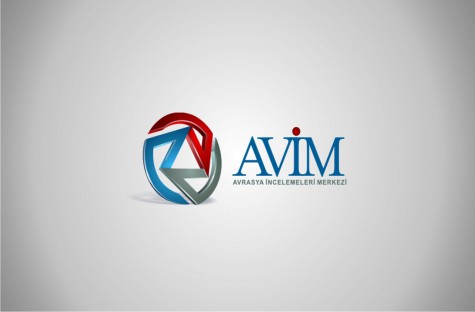
Commenting more than three years ago on a decision of the French Constitutional Council, which censored the Boyer bill in 2012, I had used as a title the words of Robert Badinter, the former president (1986-1995) of this same council: If the bill is adopted, it will be censored in the name of the constitution, and this affair will constitute the revenge of law on politics.
The end of the Perinçek v. Switzerland case is a new revenge of this kind. Having stated on Swiss territory, in 2005, that “Armenian genocide” claims were “an imperialist lie,” Homeland Party (VP) leader Doğu Perinçek was sued by the Switzerland-Armenia Association and sentenced in 2007, as the vagueness of Switzerland’s anti-racist law allows abuses. In 2013, the second chamber of the European Court of Human Rights found Switzerland wrong, and ruled that the freedom of expression of Mr. Perinçek was violated. Breaking the promises made to the Turkish government, the Swiss government filed an application to the Grand Chamber at the last minute. On Oct. 15, 2015, the Grand Chamber ended this deplorable affair and found Switzerland once again wrong. This is not only a disaster for Swiss diplomacy, which has violated its centuries-long principle of neutrality, but also, and even more clearly, for those who tried to impose legal censorship on the scholarly debate toward the Ottoman Armenian tragedy of 1915. First of all, the Grand Chamber has reaffirmed the distinction between Holocaust denial and the scholarly critique of the “Armenian genocide” allegations.
In Paragraph 234, the final judgment reaffirms the constant jurisprudence of the ECHR: Denying the Holocaust or the responsibilities of Hitler in that crime is understood to be done with anti-Semitic and anti-democratic purposes and so cannot be protected by Article 10 of the European Convention of Human Rights. However, observed the judges, it cannot be “automatically presumed” that you pursue a racist agenda if you challenge the “Armenian genocide” label, and “and there is not enough evidence that this was so in the present case.”
Then, the Grand Chamber blocked any legal censorship in the entire Council of Europe, and so even in Armenia. Actually, in Paragraph 156, the Grand Chamber explains: “It can hardly be said that by disputing the legal qualification of the events, the applicant cast the victims in a negative light, deprived them of their dignity, or diminished their humanity.”
Even more important is the fact that the Grand Chamber corroborated in practice the refusal, by the second chamber, to conclude that there would be a “general consensus” for the “Armenian genocide claims.” In Paragraph 231, the court observes that Mr. Perinçek “took part in a long-standing controversy that the Court has […] described as a ‘heated debate, not only within Turkey but also in the international arena.’” By definition, if there is a “heated debate in the international arena,” none of the interpetations presented in such a context can be regarded as backed by “a general consensus.”
Similarly, in Paragraph 287, the Grand Chamber affirms “the possibility, in a ‘democratic society,’ to express opinions that diverge from those of the authorities or any sector of the population.” We touch here the core of the issue: Banning opinions because they are not congruent with that of a pressure group or a political body is totalitarian. Moreover, according to the enemies of Mr. Perinçek’s freedom of expression, there should be no limits in hurting Turkish feelings, particularly in denying the war crimes perpetrated by Armenian volunteers, from 1914 to 1922 – a very special kind of “anti-racist” views. In other words, the Grand Chamber’s judgment marks the final defeat of a liberticidal hypocrisy.
© 2009-2025 Center for Eurasian Studies (AVİM) All Rights Reserved

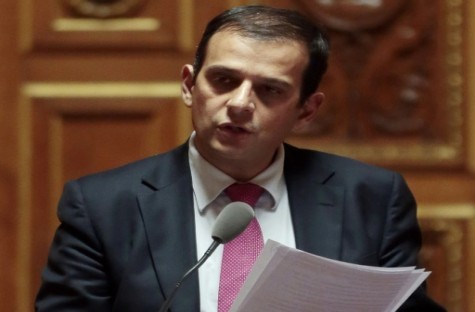 PROMINENT SUPPORTER OF ARMENIAN LOBBIES IN FRANCE SENTENCED FOR CORRUPTION
PROMINENT SUPPORTER OF ARMENIAN LOBBIES IN FRANCE SENTENCED FOR CORRUPTION
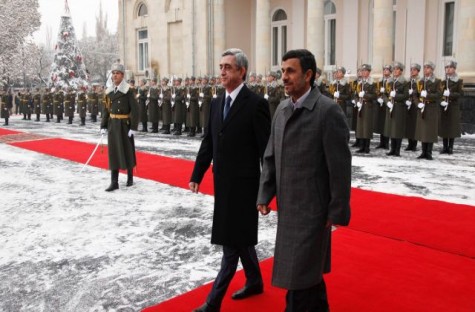 BAKU TO THE FUTURE: AZERBAIJAN, NOT ARMENIA, IS ISRAEL'S TRUE ALLY
BAKU TO THE FUTURE: AZERBAIJAN, NOT ARMENIA, IS ISRAEL'S TRUE ALLY
 THE ARCHIVES OF THE ARF-DASHNAK REMAIN CLOSED
THE ARCHIVES OF THE ARF-DASHNAK REMAIN CLOSED
 FROM TERRORISM TO INVASION AND MASSACRE: GILBERT LEVON MINASSIAN
FROM TERRORISM TO INVASION AND MASSACRE: GILBERT LEVON MINASSIAN
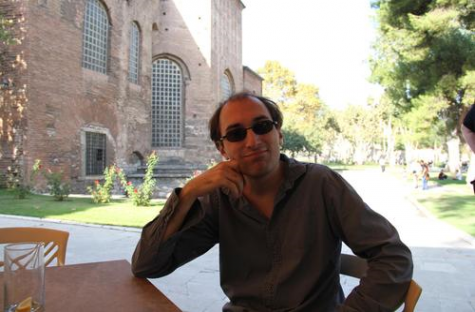 WHO IS RESPONSIBLE FOR THE CLOSING OF TURKISH-ARMENIAN BORDER?
WHO IS RESPONSIBLE FOR THE CLOSING OF TURKISH-ARMENIAN BORDER?
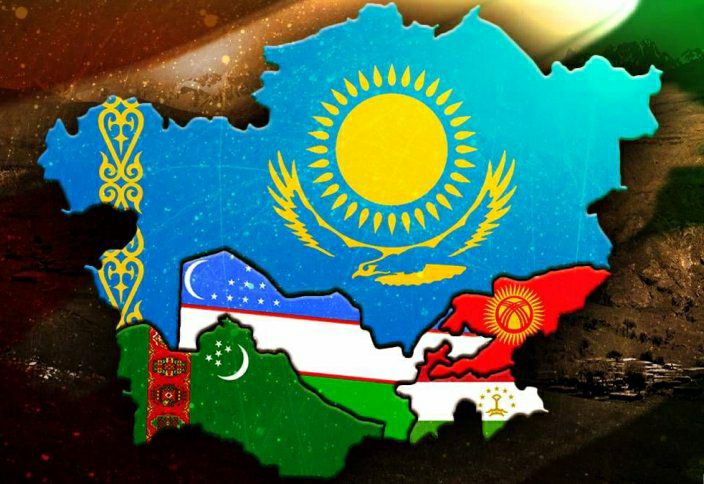 THE IMPACT OF THE RUSSIA-UKRAINE WAR ON CENTRAL ASIAN COUNTRIES
THE IMPACT OF THE RUSSIA-UKRAINE WAR ON CENTRAL ASIAN COUNTRIES
 NATIONAL SCHOOLS IN THE OTTOMAN EMPIRE AND THE RISE OF ARMENIAN INSURGENCY
NATIONAL SCHOOLS IN THE OTTOMAN EMPIRE AND THE RISE OF ARMENIAN INSURGENCY
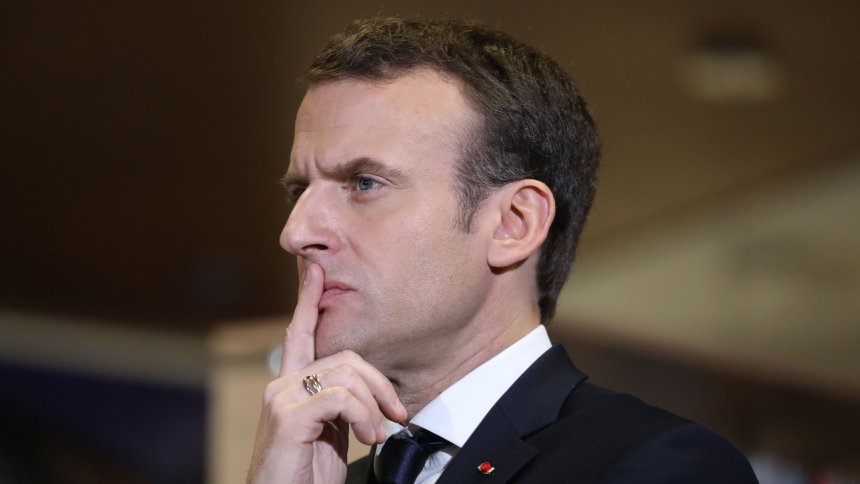 MACRON MODELS HIMSELF AFTER THE FAILURES OF FORMER FRENCH PRESIDENTS
MACRON MODELS HIMSELF AFTER THE FAILURES OF FORMER FRENCH PRESIDENTS
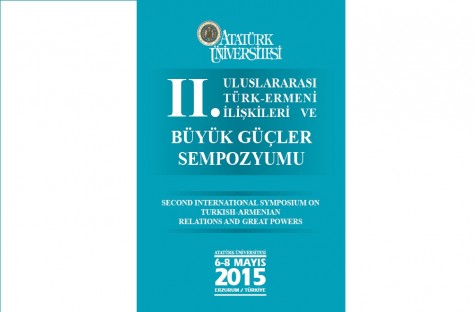 THE SECOND DAY OF THE SECOND INTERNATIONAL SYMPOSIUM ON TURKISH-ARMENIAN RELATIONS AND GREAT POWERS ORGANIZED BY ATATÜRK UNIVERSITY IN ERZURUM
THE SECOND DAY OF THE SECOND INTERNATIONAL SYMPOSIUM ON TURKISH-ARMENIAN RELATIONS AND GREAT POWERS ORGANIZED BY ATATÜRK UNIVERSITY IN ERZURUM




























